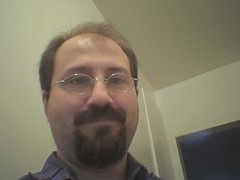Word Use
O'Reilly Radar > "Hacker" Term misused again
the end, a word means whatever the white rabbit of popular usage says it means.Not sure what the "white rabbit" reference is (is it a common idiom in English?) but the sentence is quite similar to the classic Humpty Dumpty quote:
'When I use a word,' Humpty Dumpty said, in a rather scornful tone,' it means just what I choose it to mean – neither more nor less'Still, the general idea is quite on the target. Words mean by "convention" in that people agree on different meanings for different words. This type of agreement can and does change quite frequently. Some words are more typical of these transformations, especially those words that come to be associated with strong connotations (such as "cool," "hip," "queer," "fresh"...). This runs contrary to the idea some people seem to have that a given word "really means" something very specific and that "improper use," even in normal conversation, is an error on the speaker's part. These are people who take a dictionary definition as a fixed association of word and meaning. Thing is, in many cases, the "error" is as much that of the listener who interprets specific words from a specific framework. And that's staying at the lexical (word-based) level of language, which is rather fluid and only constitutes a fraction of verbal communication. But still... Contrary to most arguments of "they stole our word," this piece is much more subtle. Despite the misleading title, Tim O'Reilly seems to accept that journalists and geeks simply have different uses for the same term. What's particularly interesting is that, as the editor of a book series with "Hacks" in the title ("Google Hacks," "Podcasting Hacks"...), O'Reilly is actively pushing the geeky acception of the term. As more people buy those "Hacks" books, it's quite possible that the positive/neutral connotation of "hacker" in geek culture will be more widely understood. Well, as these books are primarily oriented toward the geekier crowd, chances that the propagation would be minimal. On the other hand, as one commenter mentions, the risk is that would-be buyers for these books are put off by the word hack and will likely not benefit from this "campaign" to "clear the word" from negative connotations. Another interesting thing seems to be that the word "meme" is finding its way in different publications these days. Sure, it's been popular in some circles for a while, with or without references to The Selfish Gene. It's just always funny to notice how some words suddenly become part of a micro-trend. Sometimes, it surfaces for a couple of days and then goes back in our passive vocabulary for a while. In some cases, the origin of the micro-trend is very obvious as when one can see everyone has read the same text. And, as everyone knows so well, it's pretty much impossible to push the propagation of a given word. If it were, marketers and advertisers would have a rather easy job. Well, to combine these last two things. It does seem like Tim O'Reilly and other participants in the Web 2.0 conference use "meme" to refer to word use in a type of "viral marketing." A term which takes a life of its own. Or some such. So, it sounds as if word use, memes, and "hacker" were discussed at Web 2.0. Was Penenberg at Web 2.0?


0 Comments:
Publier un commentaire
<< Home